Global

Most of Andre Gunder Frank’s early work on the nature of underdevelopment focused on one region: Latin America. Here he broadened his canvas and traced the world-wide effects of the process of capital accumulation from the period just prior to the discovery of America to the industrial and French revolutions. It is Frank’s thesis that “the world has experienced a single all-embracing, albeit unequal and uneven, process of capital accumulation centered in Western Europe,” which has been capitalist for at least two centuries. | more…

Stephen Jay Gould was not only a leading paleontologist and evolutionary theorist, he was also a humanist with an enduring interest in the history and philosophy of science. The extraordinary range of Gould’s work was underpinned by a richly nuanced and deeply insightful worldview. Richard York and Brett Clark engage Gould’s science and humanism to illustrate and develop the intellectual power of Gould’s worldview, particularly with regard to the philosophy of science. They demonstrate how the Gouldian perspective sheds light on many of the key debates occurring not only in the natural sciences, but in the social sciences as well. They engage the themes that unified Gould’s work and drove his inquires throughout his intellectual career, such as the nature of history, both natural and social, particularly the profound importance of contingency and the uneven tempo of change. They also assess Gould’s views on structuralism, highlighting the importance of the dialectical interaction of structural forces with everyday demands for function, and his views on the hierarchical ordering of causal forces, with some forces operating at large scales and/or over long spans of time, while others are operating on small scales and/or occur frequently or rapidly. | more…

Mainstream, or more formally, neoclassical, economics claims to be a science. But as Michael Perelman makes clear in his latest book, nothing could be further from the truth. While a science must be rooted in material reality, mainstream economics ignores or distorts the most fundamental aspect of this reality: that the vast majority of people must, out of necessity, labor on behalf of others, transformed into nothing but a means to the end of maximum profits for their employers. The nature of the work we do and the conditions under which we do it profoundly shape our lives. And yet, both of these factors are peripheral to mainstream economics. | more…
The year now ending marks the fortieth anniversary of Paul Baran and Paul Sweezy’s classic work, Monopoly Capital: An Essay on the American Economic and Social Order (Monthly Review Press, 1966). Compared to mainstream economic works of the early to mid-1960s (the most popular and influential of which were John Kenneth Galbraith’s New Industrial State and Milton Friedman’s Capitalism and Freedom), Monopoly Capital stood out not simply in its radicalism but also in its historical specificity. What Baran and Sweezy sought to explain was not capitalism as such, the fundamental account of which was to be found in Marx’s Capital, but rather a particular stage of capitalist development. Their stated goal was nothing less than to provide a brief “essay-sketch” of the monopoly stage of capitalism by examining the interaction of its basic economic tendencies, narrowly conceived, with the historical, political, and social forces that helped to shape and support them | more…
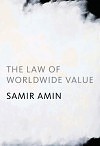
In his new extensively revised and expanded edition of this book, Samir Amin suggests new approaches to Marxian analysis of the crisis of the late capitalist system of generalized, financialized and globalized oligopolies following on the financial collapse of 2008. Considering that Marx’s Capital, written before the emergence of imperialism as a decisive factor in capitalist accumulation, could provide no explanation for the persistent “underdevelopment” of the countries of the “global South,” Amin advances several important theoretical concepts extending traditional Marxian views of capitalist evolution. | more…
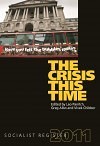
The global economic crisis that closed the first decade of the 21st century has demonstrated that the contradictions of capitalism cannot be overcome. The challenge for socialist analysis is to reveal both the nature of these contradictions in the neo-liberal era of globalized finance, and their consequences in our time. Crises need to be understood as turning points that open up opportunities. How to facilitate this is the sharpest challenge posed to socialists by the most severe global economic crisis since the 1930s. | more…
Venezuelan president Hugo Chávez’s extraordinary speech to the General Assembly of the United Nations in September drew worldwide media attention not simply because he referred to the current occupant of the White House as “the devil” for his nefarious actions as the leader of world imperialism, but also because of his scarcely less heretical praise of MR and MR Press author Noam Chomsky for his book Hegemony or Survival: America’s Quest for Global Dominance. As the foremost dissident intellectual in the United States, Chomsky is generally ostracized by the dominant U.S. media system, treated as a ghost-like or even non-existent figure. The establishment was thus caught off guard when Chávez’s comments suddenly catapulted Hegemony or Survival into the bestseller list, along with another recent Chomsky book, Media Control: The Spectacular Achievements of Propaganda. The speed with which orders for Chomsky’s books piled up in bookstores and Internet distributors across the nation demonstrated beyond any doubt that people are hungry for serious radical critiques of U.S. imperialism but seldom know where to look—since all such dissident views are deemed off limits by the ruling media-propaganda system | more…
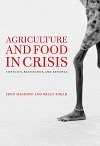
The failures of “free-market” capitalism are perhaps nowhere more evident than in the production and distribution of food. Although modern human societies have attained unprecedented levels of wealth, a significant amount of the world’s population continues to suffer from hunger or food insecurity on a daily basis. In Agriculture and Food in Crisis, Fred Magdoff and Brian Tokar have assembled an exceptional collection of scholars from around the world to explore this frightening long-term trend in food production. While approaching the issue from many angles, the contributors to this volume share a focus on investigating how agricultural production is shaped by a system that is oriented around the creation of profit above all else, with food as nothing but an afterthought. | more…
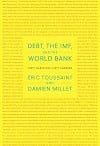
Mainstream economists tell us that developing countries will replicate the economic achievements of the rich countries if they implement the correct “free-market” policies. But scholars and activists Toussaint and Millet demonstrate that this is patently false. | more…

The theory and practice of revolutionary social transformation, Bruce Brown argues, cannot rest content with the exclusive emphasis of traditional Marxism on world-historic processes and the struggle of the working classes for their collective emancipation. He views the experience both of the backsliding of revolution in the Soviet Union and Eastern Europe, and of the manipulative integration of the population of the West into consumer capitalism, as seen at the turning point years of the early 1970s. Brown argues that Marxism needs to rediscover the specifically subjective, psychological dimensions of the revolutionary process in their relation to the objective patterns in history. | more…

This intriguing work deals with the plight of the alienated individual, estranged from humanity and the surrounding world. It examines such questions as: Why do writers like Kafka, Thomas Wolfe, Rilke, and the existential philosophers, who portray man as a stranger in the world, have such a strong appeal? Is estrangement limited to individual cases or has it become a universal fate? Is alienation a consequence of the triumph of the machine? Is it caused by the increasing complication of our political life and by the growing separation between leaders and masses? Is it characteristic of the human condition, or is it a specific development of modern society? Should mankind resign itself to alienation, or can it be overcome, conquered? | more…
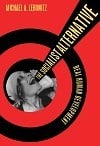
“A good society,” Michael Lebowitz tells us, “is one that permits the full development of human potential.” In this slim, lucid, and insightful book, he argues persuasively that such a society is possible. That capitalism fails his definition of a good society is evident from even a cursory examination of its main features. What comes first in capitalism is not human development but privately accumulated profits by a tiny minority of the population. When there is a conflict between profits and human development, profits take precedence. Just ask the unemployed, those toiling at dead-end jobs, the sick and infirm, the poor, and the imprisoned. | more…









